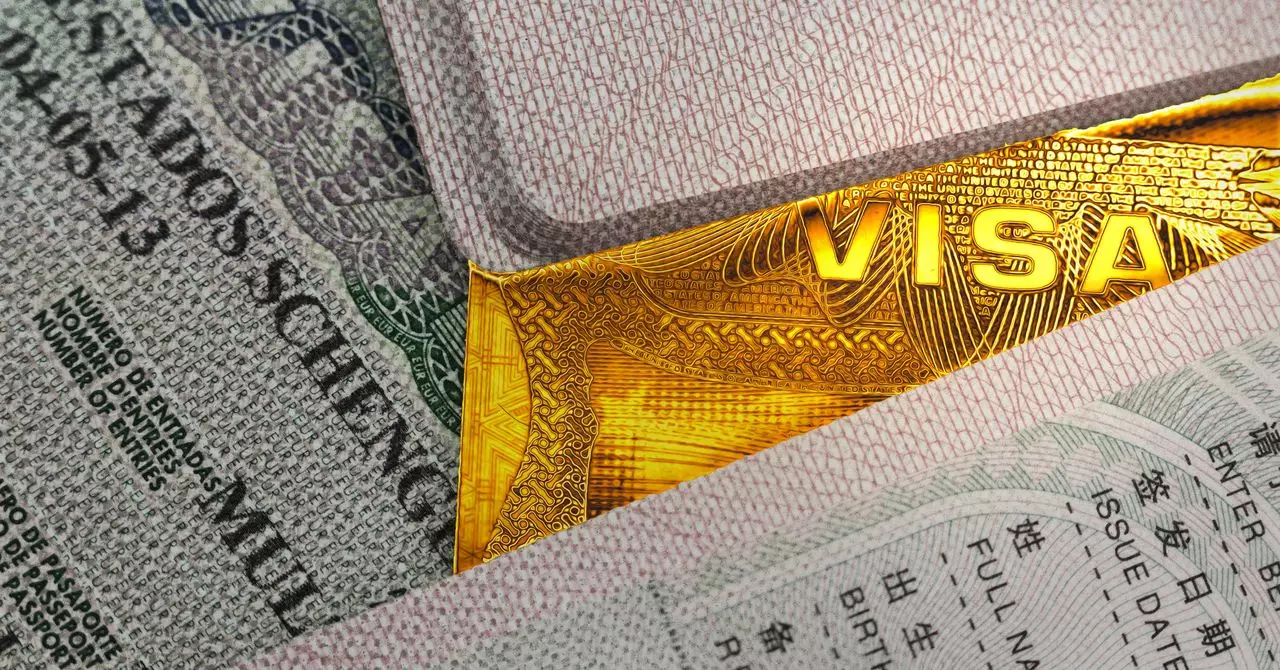In a world increasingly divided by wealth and opportunity, the debate over immigration policies often highlights one of the most contentious issues—the ability of economic elites to secure residency in the United States through financial investment. The proposal of a “gold card” to revolutionize America’s immigration landscape has ignited discussions about merit, ethics, and the integrity of the nation’s values. Currently, the U.S. government can issue around 1.1 million permanent resident cards yearly, categorizing them for family members, skilled workers, and others. But proposals like the gold card challenge the predominant narrative that immigration should serve as a pathway to a better life for all, rather than for just those with deep pockets.
The presented scheme aligns closely with the EB-5 investor visa, initiated in 1990 as an effort not merely to draw foreign cash but to ensure economic development—requiring a significant investment of $1.05 million, or $800,000 in less prosperous regions. At its core, the EB-5 program was structured to facilitate job creation while maintaining a rigorous vetting process to safeguard against corruption, ensuring that the funds being invested stemmed from legitimate, economically productive sources. Unfortunately, the introduction of the gold card threatens to erode the careful balance this program has maintained.
Gold Card: The Empowerment of Elites?
Central figures behind the gold card initiative, such as newly appointed advocates, are painting a picture that technology transfers and streamlined processes will create an attractive plea for affluent foreign nationals eager for American residency. However, U.S. immigration policies are not just about economics; they reflect the ethical standards of a nation. By entertaining the idea of offering a golden ticket to those with vast resources, the existing socio-economic divides could be exacerbated even further, conferring privilege that comes at the expense of equity and integrity.
When former President Donald Trump was asked about the potential eligibility of foreign oligarchs for this program, his nonchalant endorsement echoed the broader concern of safeguarding U.S. immigration from not just investment capital but also from shady dealings and opaque financial dealings that could accompany such resources. Do we really want to open our doors wider to individuals whose wealth may be derived from morally questionable avenues? The clarity of the EB-5 program’s scrutiny must not only be maintained but reinforced.
The True Users of EB-5: A Misunderstood Population
Beyond the headlines and discussions of wealth, the reality is that the EB-5 program has typically catered to a different demographic—hardworking immigrants who have spent years saving to pursue this American dream. Many of these applicants are not the high net-worth individuals that the proposed gold card anticipates; they are families attempting to invest in real estate or small businesses in hopes of building a fruitful future. This pivotal point is often lost amidst the glamour associated with perceived “buying” of citizenship.
As Brad Sher, EB5 Group’s CEO, emphasizes, the majority of EB-5 applicants come from modest beginnings, compelled to risk their hard-earned savings for a chance at a new life. Should they falter, these individuals do not merely face economic loss; their aspirations for opportunity could be irrevocably dashed. By displacing the traditional EB-5 scheme with a pathway reserved for the wealthy, we stand to disrupt the ultimate promise of this nation—a land for all who dare to dream.
The Mysterious Future of the Gold Card
Despite the potential urgency surrounding its launch, the details of the gold card initiative remain largely shrouded in uncertainty. The timeline proposed by key advocates—first touted as a launch “in about two weeks”—has not materialized, leaving many wondering whether the program is ever destined to surface. Speculation fills the void, creating an aura of both intrigue and skepticism as to what the final design of this initiative might entail.
Ultimately, it’s essential to scrutinize not only the framework of the proposed gold card but also its implications for societal values and the ethos of American immigration. The balancing act between attracting international capital while ensuring an ethical immigration process that uplifts the public good presents a complex challenge, one that calls for serious reflection in our pursuit of equitable access to the American dream for all—wealthy or otherwise.

